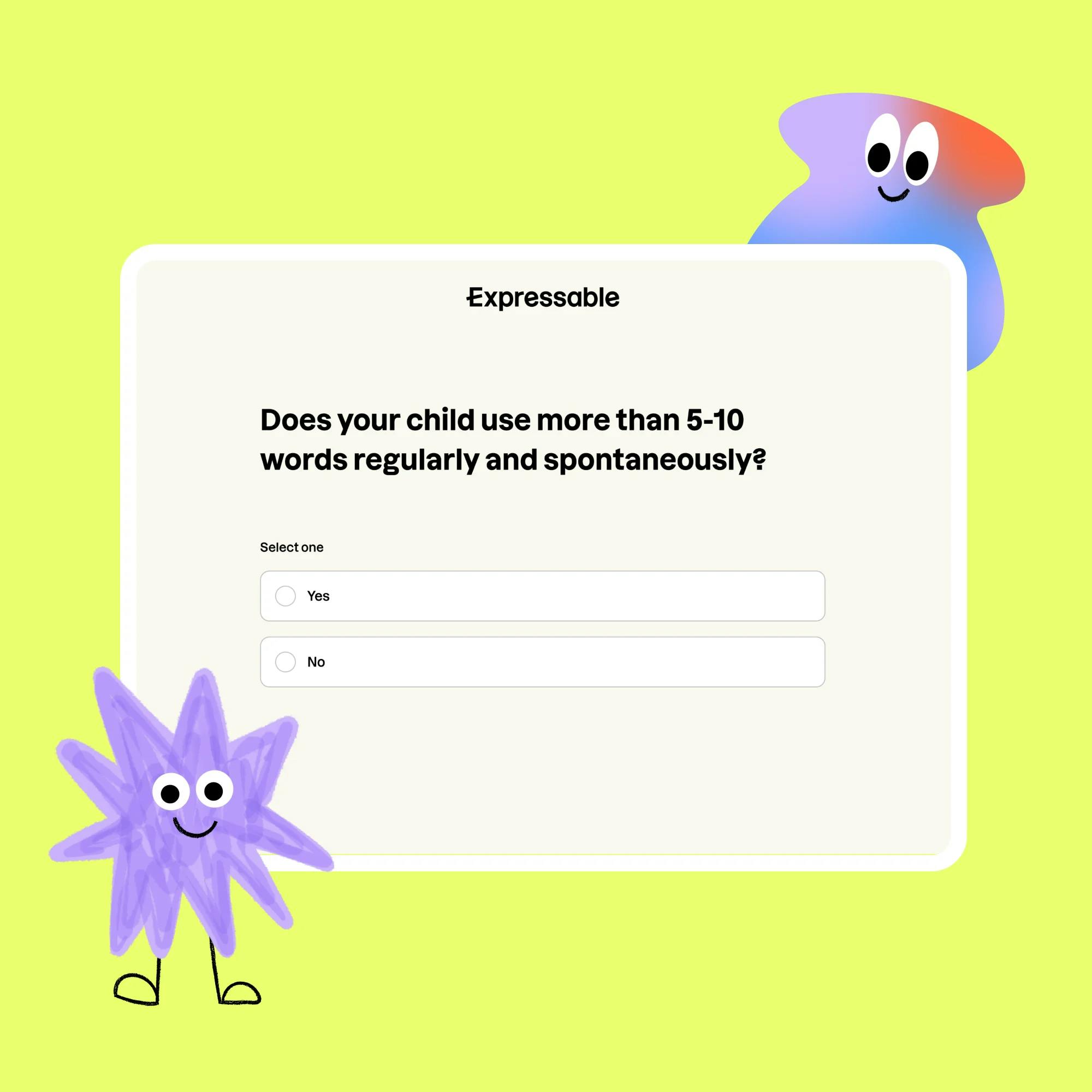
What Is a Speech Delay and How Is It Diagnosed?
 Leanne Sherred, M.S., CCC-SLP
Leanne Sherred, M.S., CCC-SLP
In our article "How to Tell If Your Child Has a Speech Delay," we reviewed some common signs that your child may have a speech delay. Here, let's dive deeper into what a speech delay is (and is not), and how speech delays are diagnosed by a speech therapist.


What is considered delayed speech?
Speech and language skills begin with the slightest cooing of an infant. As the months pass, babies eventually begin to babble, which soon progresses to one of the most joyous moments for a parent: their child’s first understandable words.
A typical 2-year-old can say about 50 words and speak in two- and three-word sentences. By age 3, their vocabulary increases to as many as 1,000 words.
A speech delay is when a toddler doesn’t meet these typical speech milestones. It is a common developmental problem that affects as many as 10% of preschool children.
A speech delay is a common problem that affects as many as 10% of preschoolers.
Because all children progress on their own timeline, it can be difficult for caregivers to tell whether their child is just a late talker (and will soon be chatting a million miles a minute), or whether there’s a problem that needs professional treatment.
This is why assessment and diagnosis by a certified speech-language pathologist, or speech therapist, is so important. Speech delays can be effectively treated, and research has shown that earlier interventions lead to better outcomes.
Is there a difference between a speech delay and a language delay?
While speech delays and language delays are often confused, there are important differences.
Speech is the physical act of producing sounds and saying words. A child with a speech delay is often difficult to understand. While they may use words and phrases to express ideas, they often have trouble forming the correct sounds. The inability to understand your child can be frustrating and disheartening for a parent.


Conversely, a toddler with a language delay may make the correct sounds and pronounce some words, but they can’t form phrases or sentences that make sense.
Some children have either a speech delay or a language delay, and some have both. Distinguishing between the two is important, since it will inform treatment decisions. If you think your child may have a speech or language delay, it’s important to seek help from a speech therapist. They’re the most qualified professional to evaluate your child and make a diagnosis.
How are speech delays diagnosed?
If your child might have a problem, it's important to see a speech therapist. During the initial evaluation, they will ask about your toddler’s speech and language, as well as other developmental milestones and behaviors.
More specifically, your speech therapist will evaluate:
What your child understands (called receptive language)
What your child can say (called expressive language)
Your child’s sound development and how clearly they speak
Your child's oral-motor status (how the mouth, tongue, and lips work together for speech, as well as eating and swallowing)
The speech therapist will also review your child's medical history and talk with you about your concerns. Based on the results, the speech therapist may recommend speech therapy for your child. Remember, the earlier treatment can begin, the sooner your child will make progress!
How Expressable Can Help
Concerned your child isn't reaching age-expected milestones? Looking for communication support from a professional? Expressable is a national online speech therapy practice serving children and adults. We treat all major areas of communication and feeding, offer flexible hours including evenings and weekends, and accept most major health insurance plans. We’re proud to have earned more than 3,000 5-star reviews from our clients (4.9/5 average).
Our therapy model is centered on parent and caregiver involvement. Research proves that empowering caregivers to participate in their loved one’s therapy leads to better outcomes. That’s why we combine live, 1-on-1 speech therapy with personalized education and home practice activities for faster progress.
Communication is more than words. It’s how we share how we feel and show who we are. We’re here to help you or your child do just that.










